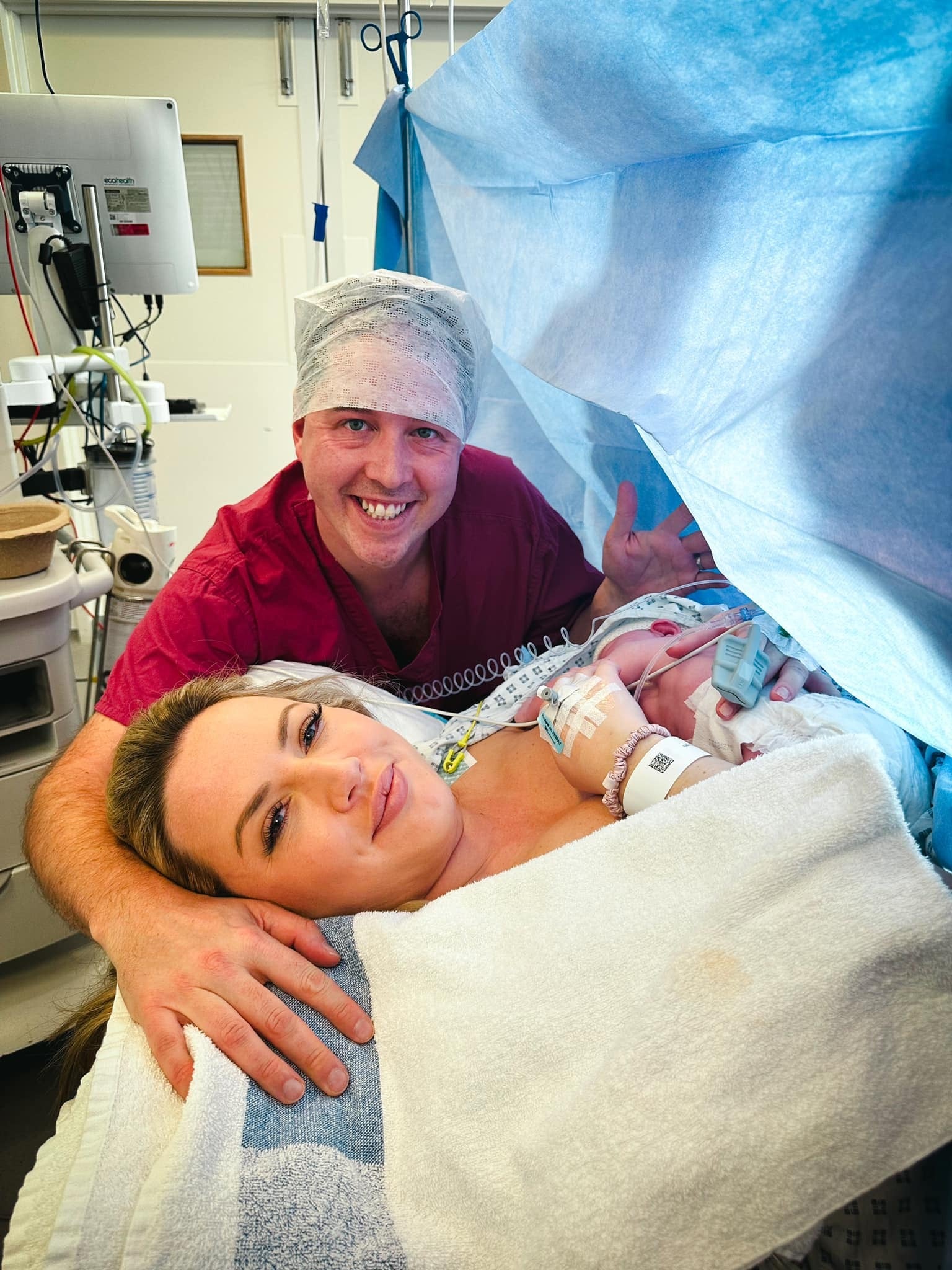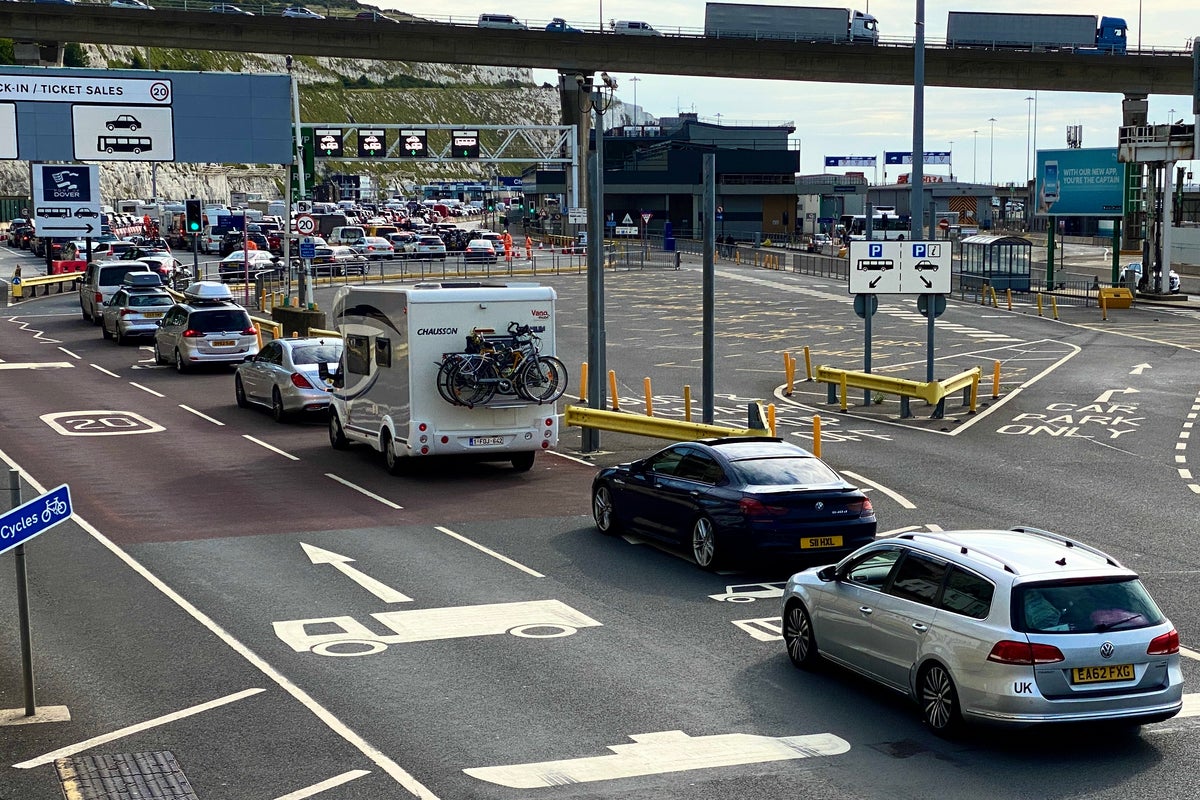“Suddenly I felt like everything I’d ever worked for had crashed around me, suddenly I was losing everything,” says Grace Carter. “The idea of losing my business felt like losing a baby.
“I really, really struggled.”
After trying for years to have a second child, the 33-year-old was overjoyed when she gave birth to her daughter in November 2023.
However, she tells the Independent she was left feeling suicidal as a result of the financial strain of having a baby and is still in a huge amount of debt after trying to keep her business as well as her young family afloat.
Ms Carter, from Colchester, has since joined calls for maternity pay to match National Living Wage, and is demanding that the “economic contribution of mothers is appropriately recognised and compensated”.
She said she received Statutory Maternity Pay (SMP), which works out at the equivalent of a full-time worker on a 37.5 hour week earning around £4.99 per hour after the first six weeks of maternity leave. This is roughly just 41 per cent of the 2025 National Living Wage (NLW) of £12.21 per hour, which has been set out to ensure a basic standard of living.
Ms Carter – who is the founder of The Metamorphose Group, a collective of purpose-driven brands aimed at changing the lives of women and girls, which she has been building over eight years – said the combined effects of her being out of work, as the head of her company, and the discrimination she faced led to her business’ yearly turnover shrinking to almost half, from an average of £600,000 to £350,000 that year, and she was forced to borrow £140,000.

The mother-of-two has since founded the End Parenting Poverty campaign and has launched a petition calling on the government to raise statutory maternity and paternity pay to match the NLW.
Ms Carter said: “At the bare minimum, if the government is mandating that you should not be working for less than the NLW as it’s not sustainable or ethical, then we cannot suggest people having children live off half of that.”
The government said new mothers are entitled to 52 weeks of leave and 39 weeks of SMP, with the rate increasing from £184.03 to £187.18 per week from April, while it is also set to carry out a review of wider statutory parental leave.
Three in five expectant and new mothers report money worries impacting their health, and almost a quarter are going without food to make sure they can feed their families, according to a survey of more than 1,000 conducted by Maternity Action this month.
The charity’s head of policy Judith Dennis said: “Sadly Grace Carter is not alone in her experience of suffering financial shock on maternity pay… we support Grace’s call for parity between the National Living Wage and maternity pay, a call we made on all the political parties before the general election.”
Katie Guild, co-founder of Nugget Savings, a company focused on transforming parental leave pay, said: “We must remember that having a baby is incredibly productive for society. We are raising the future generation of taxpayers, customers and workers. Without it, our economic future looks stark, which is why so many governments are concerned about the plummeting birth rates.
“The motherhood penalty makes up 80 per cent of the gender pay gap, and this begins with maternity pay. It is high time the economic contribution of mothers is appropriately recognised and compensated. This starts by increasing government maternity pay to the national minimum wage.”
Ms Carter said she suffered a traumatic miscarriage in January 2022, during which she haemorrhaged and had to be resuscitated, leaving her with depression and complex PTSD. But she said she had to go back to work within three days of leaving hospital, against her doctor’s advice, due to the lack of financial support available for her as a female business owner.
Following that miscarriage, she said her pregnancy with her second daughter was high-stress and she was left needing a blood transfusion after a caesarean section. It was when she was recovering in hospital that she said her phone started notifying her about issue after issue within her company.
“I had no choice – if I didn’t work, then the business was going to go under,” Ms Carter said. “I’ve worked too hard, over too many years, and made too many sacrifices for that to happen. I was also really conscious that my staff and suppliers were reliant on me for their mortgages and providing for their families.”
But she said she was nervous about doing so, because in order to be eligible for the little maternity pay she was to receive, legally she was not allowed to work more than 10 “keeping in touch” days. It again highlighted the unique challenges she said female entrepeneurs having children face, being self-employed and responsible for their businesses.
She said she ended up doing as much as was needed to prevent her company from going under, but no more, yet the business still suffered significantly as a result. It was following this that her mental health really began to suffer, which she blames on the financial pressures she was under.
Ms Carter, who recently gave evidence to the Women and Equalities Committee on this issue, said: “We’re working in a world built for and by men. No one is talking about having a baby and the impact of having a baby on a business. A year on, it’s still not getting onto government agendas. I thought I’ve had enough of this, I’m going to start campaigning for change.”
A government spokesperson said: “The law is clear – no one should face discrimination because they are pregnant or are taking parental leave. Statutory Maternity Pay and Maternity Allowance are uprated each year and are only one element of support available for pregnant women and new mothers, who may also be eligible for Universal Credit or Child Benefit.
“As we fix the foundations of the economy, we’re uprating benefits and supporting 700,000 of the poorest families by making changes to Universal Credit deductions to help low-income households and make everyone better off.”
If you are experiencing feelings of distress, or are struggling to cope, you can speak to the Samaritans, in confidence, on 116 123 (UK and ROI), email [email protected], or visit the Samaritans website to find details of your nearest branch.
If you are based in the USA, and you or someone you know needs mental health assistance right now, call or text 988, or visit 988lifeline.org to access online chat from the 988 Suicide and Crisis Lifeline. This is a free, confidential crisis hotline that is available to everyone 24 hours a day, seven days a week. If you are in another country, you can go to www.befrienders.org to find a helpline near you


